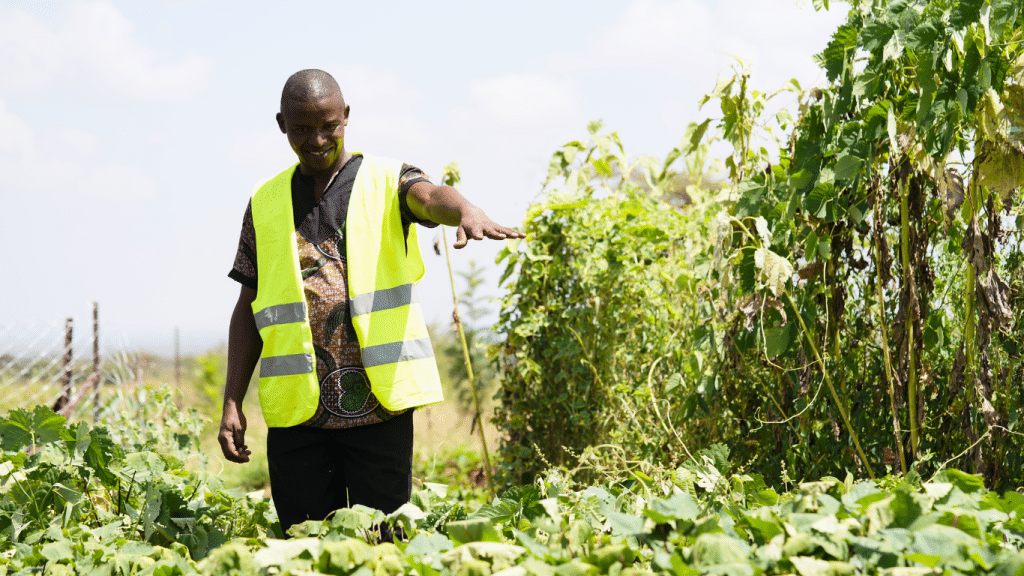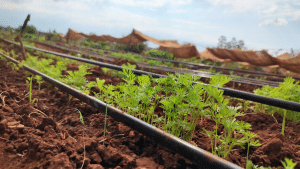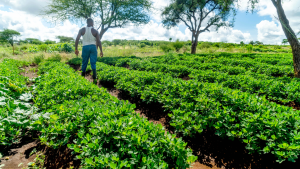
In the heart of Kimana, Kajiado county, Kenya, lies an oasis of hope and transformation where the synergy between sustainable agriculture and public health is vividly demonstrated. Ambokili Farm, an epitome of organic farming and permaculture, is at the forefront of transforming semi-arid terrains into self-sustaining, biodiverse ecosystems. This transformation is not just about enhancing the landscape; it’s about pioneering a profound change in community health, environmental resilience, and social wellbeing.
The Intersection of Agriculture and Public Health
At first glance, the connection between agriculture and public health might not be evident. However, the bond is intrinsic and profound. Sustainable agriculture, particularly organic farming and permaculture practices championed by Ambokili Farm, directly impacts public health by promoting food security, nutrition, and environmental stewardship.
Nutritional Security: A Pillar of Public Health
One of the most direct links between sustainable agriculture and public health is through nutrition. Organic farming methods eschew synthetic pesticides and fertilisers, ensuring that the food produced is not only safer but often more nutritious. At Ambokili Farm, the focus on biodiverse ecosystems ensures a variety of crops that contribute to a balanced diet. This variety is crucial in combating nutritional deficiencies and promoting overall health, especially in communities vulnerable to food insecurity.
Environmental Health: The Foundation of Wellbeing
The practice of transforming semi-arid land into productive, self-sustaining ecosystems has far-reaching health implications. By restoring soil health and biodiversity, Ambokili Farm is reversing environmental degradation – a critical factor in public health. Healthy ecosystems can sustain healthy communities. Reduced soil erosion, improved water retention, and increased plant diversity lead to cleaner air and water, reducing the risk of respiratory and waterborne diseases.
Empowering Communities: Towards Sustainable Wellbeing
Ambokili Farm’s approach goes beyond agriculture; it’s about community development and empowerment. By involving the residents of Kimana in the farming processes, the Farm fosters a sense of ownership and responsibility towards the land and each other. This empowerment leads to better health choices, increased physical activity, and a shared vision of sustainability. Moreover, the farm’s focus on organic permaculture provides the community with the knowledge and tools needed to sustain these practices, ensuring long-term health benefits.
A Model for the Future
The Ambokili Farm model illustrates that sustainable agriculture can be a powerful driver for public health. By nurturing the land with organic practices, we’re not only securing food but also ensuring a healthier environment and community. This model serves as a beacon for how we can collectively address some of the most pressing health challenges by reconnecting with the principles of sustainable agriculture.
As we look towards the future, the lessons from Ambokili Farm highlight the importance of integrating agricultural policies with public health strategies. It’s a call to action for communities, policymakers, and organisations worldwide to recognise the intertwined fate of our health and the health of our planet.
In a world where environmental degradation and health crises loom large, the story of Ambokili Farm offers hope and a path forward. It’s a testament to the power of sustainable agriculture in not just feeding bodies but in nourishing health, community, and the earth itself.
As we continue our journey at Ambokili Farm, we invite you to join us in this transformative endeavour. Together, we can cultivate not just crops, but a future where public health and sustainable agriculture grow hand in hand.






